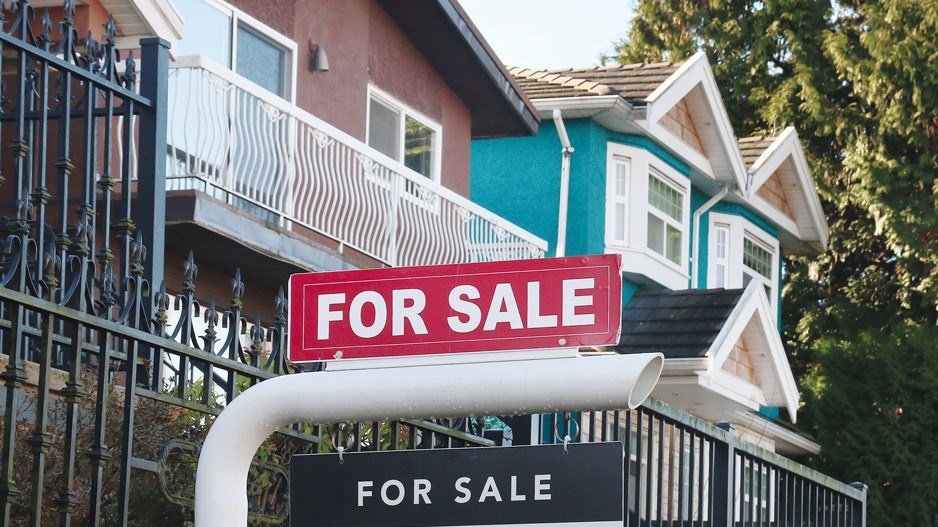Vancouver’s housing crisis is getting worse under Kennedy Stewart because he doesn’t understand his role as mayor and refuses to build the coalition on council required to solve it.
During the 2018 campaign, the outgoing Burnaby MP vowed to clear Vancouver’s permitting backlog, and to build 85,000 new homes – including 25,000 non-profit affordable rentals – over the “next 10 years.”
Stewart’s pitch to voters was that, as an independent, he could work across party lines to get stuff done.
The results so far aren’t encouraging:
•The average house price has skyrocketed to $1,444,045 this month, the highest ever.
•Most of the social-housing council approved between 2016 to 2019 hasn’t been built yet, with another 1,000 held up in permitting,
•Apartment bans remain in over 75% of our residential land, and
•There are just as many people experiencing homelessness as ever.
“I’m really concerned about the number of projects held up in Vancouver,” B.C. Attorney General and Housing Minister David Eby said recently. The minister is now looking at measures to kick-start the process because mayors like Stewart can’t get it done.
What’s worse is Stewart isn’t even bothering to secure the allies he needs.
Although Stewart has some limited powers to direct staff (unlike other B.C. mayors) his primary role is to build a council majority to implement his agenda.
As mayor, exercising leadership through collaboration and teamwork will be one of my top priorities.
In 2018, Stewart ran as an independent as part of a negotiated deal brokered by the Vancouver District Labour Council (VDLC), one that united the “left” by persuading the Greens, COPE and OneCity not to run mayoral candidates against him.
VDLC-backed candidates won half of the seats. The NPA won the other half.
This painted Stewart into a corner. The mayor needs at least a few non-VDLC-backed councillors to vote with him on housing policy, something his re-election strategy doesn’t allow.
It’s important to keep in mind that housing politics doesn’t follow the traditional “left-right” spectrum. Many of Stewart’s VDLC-backed allies vote against housing projects along with councillor Colleen Hardwick, who was elected under the NPA. OneCity’s Christine Boyle and most other NPA-backed councillors are more predictably pro-housing.
At first it looked like Stewart’s war on NPA councillors was rooted in incompetence, but, over time, it started appearing more deliberate.
The nonsense all started with how the mayor dealt with Coun. Lisa Dominato’s motion last fall calling for “creative and experimental” housing in single-family zones.
Making housing “suitable and affordable for a wider spectrum of Vancouver families” should have been easy for Stewart to support, but there was no way he was going to give any credit to an NPA councillor.
He introduced amendments to her motion but failed to do the groundwork required to secure the votes to succeed.
It turns out that this defeat may have been exactly what he wanted.
He launched a fancy campaign-style website the very next day, declaring war.
He accused the NPA councillors of “crush[ing] the dreams of hard-working families desperate to get into the housing market,” making no mention of the Greens who voted along with them.
Stewart made it clear that he wasn’t planning on accomplishing much until he can find a council he can get along with.
This meant that the next two years – more than half of his term – would be spent campaigning instead of governing. On our dime.
Last month, Stewart did it again.
A staff proposal to allow non-profits and co-ops to build up to six storeys (instead of four) in certain areas without requiring costly and time-consuming rezoning was on the table, supported by council.
OneCity’s Christine Boyle, supported by the mayor, introduced a new motion to study increasing this to 12 storeys.
This motion was defeated 7-3.
Once again, the mayor made no attempt at compromise, no attempt at building a common front to tackle the issue at hand.
I would have voted for the motion, provided there was still room for timely public input to refine the idea. But I’m not the one the mayor is supposed to convince.
He’s supposed to win over council.
The mayor is campaigning instead of governing, fundraising instead of bridge-building.
In fact, he’s stooped down to the unthinkable: fundraising off of failure. Donating to his campaign will only encourage him to fail some more.
It’s time for leadership, for a change, at City Hall.
Mark Marissen is running for Mayor of Vancouver.




